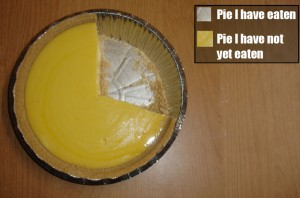I’d like to propose a session on annotating (especially on teaching annotation with) non-textual media. While there are quite a few tools available (and more cropping up regularly) for working with texts, I haven’t found any satisfactory out-of-the-box solutions for working with non-textual stuff. So many tools require active and ongoing support, or agile infrastructure (and agile infrastructure staff units), or developer tweaking that none have proven quite right for our environment. Am I just not looking in the right places? Does anyone else have this issue and want to talk about it?
]]>Visualizations, visualizations everywhere, but what do people see when they look at them?
It’s hard to know what people think they see when they look at visualizations. So I propose a session where we look at a bunch of visualizations, especially but not necessarily from history or the humanities, and talk about what we see. This discussion could include at least three elements. First, perhaps some people in the room will be versed in the science of perception. Second (and more interesting to me, at least) I’d like to see the different scholarly interpretations people make of visualizations. To put the question a different way, if you were going to show a particular visualization to a class or write about it in an article, what arguments would you make? Third, should the conventions (the grammar) of historical and humanities visualizations be different than the visualizations that prevail elsewhere? (Cf. Johanna Drucker’s article.)
If people are interested in this session, perhaps we could prepare for the discussion by posting links to visualizations that we can talk about in the comment section below.
]]>If anyone wants to learn how to use Omeka in a classroom (and/or talk about the benefits/challenges of doing so), I could lead a session on this. I have had good luck using Omeka to start “Writing of Indigenous New England,” an archive of literature written by Native American people in this region (indigenousnewengland.com). My students have partnered with local museums and historical societies, basically helping them to digitize their physical exhibits; they have also worked with contemporary Native authors, giving them personal pages (including Wikipedia pages–another topic I’d be happy to discuss). Using Omeka, humanities majors can learn a great deal about public writing, public history (including literary history), and public engagement. ..and come away with greater confidence about their “marketable” skills, as well.
]]>
What are you teaching students? What tools? What resources? What products are they producing?
In this session, I’d like to have an open discussion where attendees can share tools and experiences, and learn about new ones.
A side note: I will only be attending on Friday due to an emergency trip.
]]>